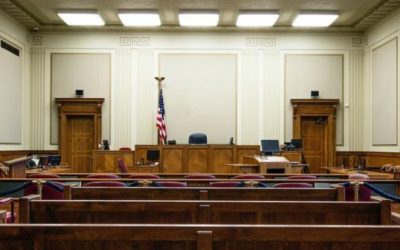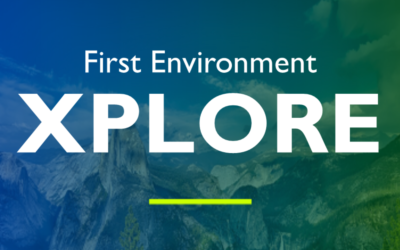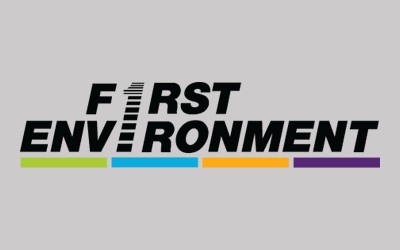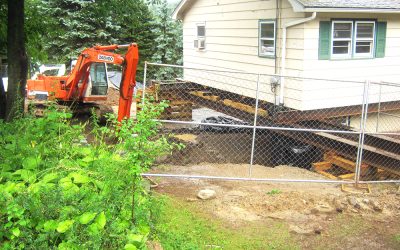NJDEP’s Municipal Stormwater Permit: Hot Topics from the Latest Update

To ring in the new year, the New Jersey Department of Environmental Protection (NJDEP) issued the new Tier A Municipal Stormwater General Permit (GP) renewal (effective January 1, 2023), which initiates many changes for our municipalities. We’ve outlined some of the highlights below. For a deeper dive into these requirements, the full permit can be viewed on NJDEP’s website.
Background
In order to prevent pollutants from being transported to local water bodies from Municipal Separate Storm Sewer Systems (MS4s), federal stormwater regulations require MS4 operators to obtain a National Pollutant Discharge Elimination System (NPDES) permit and implement a stormwater management program. The Tier A Municipal Stormwater GP renewal is a Comprehensive GP (under 40 CFR 122.28), which serves to authorize MS4 stormwater discharges from New Jersey Tier A municipalities and requires those respective municipalities to develop a stormwater program.
MS4 Stormwater Permitting Program: Tier B Municipality Reassignment
As of January 1, 2023, all 101 municipalities previously assigned to Tier B have now been assigned to Tier A, in order to help better manage stormwater discharges and resulting pollutant and nutrient impacts to waterways. This major change will require former Tier B municipalities to initiate a plethora of Municipal Stormwater GP compliance activities in short order. The permit renewal was effective on January 1, 2023; however, the NJDEP is allowing a period of 12 months (until December 31, 2023) for former Tier B municipalities to bring their facilities into compliance.
MS4 Stormwater Permitting Program: Funding
In order to make this transition easier, the Murphy administration is offering $19 million in grants to assist municipalities with new stormwater permitting requirements. Grants are broken down to $25,000 for existing Tier A municipalities and $75,000 for former B municipalities that now have to comply with Tier A requirements. The announcement was made on February 17, 2023 and details on how to apply should be posted by March 3rd on the grant page, which can be found here.
Permit Renewal Highlights
Stormwater Pollution Prevention Plan (SPPP; Permit Section IV.A.)
An updated, fillable template will be made available on the MS4 webpage. The municipal SPPP must be electronically submitted to NJDEP and posted on the municipality’s dedicated stormwater webpage.
Dedicated Municipal Stormwater Webpage (Permit Section IV.B.2.)
A dedicated stormwater webpage is now required for each Tier A municipality. Look for a new HTML template which will become available soon, here.
Local Education and Outreach (Permit Section IV.C.)
Municipalities’ education and outreach efforts are measured on a point system, with different stormwater events garnering different point values. A total of 12 points is required for each year of the permit. Point categories are now located in Attachment A of the permit. The annual permit certification report will ask permittees to certify compliance with these items by May 1st of each year for activities from the year before.
Street Sweeping (Permit Section IV.F.2.a.i. and ii.)
Triannual sweeping (every four months) is required for segments of municipal roads that have storm drain inlets which discharge to surface water. Annual sweeping is required at segments of municipal roads that do not have storm drain inlets that discharge to surface water.
Excess De-icing Material Management (Permit Section IV.f.2.a.vii.)
Everyone has seen piles of excess salt in roadways during winter months. Now, removal of piles of salt and de-icing materials that have been deposited on municipal roads and parking areas during spreading operations must be removed within 72 hours after the end of the storm (conditions permitting).
New or Modified Best Management Practices at Maintenance Yards & Other Ancillary Operations (Permit Section IV.F.5.)
Wood waste, yard trimmings, finished leaf compost, inoperable vehicles or equipment, and aggregate material and construction debris may now only remain on municipal property for a maximum of six months. In addition, cold patch must now be stored indoors or covered on an impervious surface.
Employee Training (Permit Section IV.F.6. through 9.)
Municipal employees must now be trained on all stormwater topics annually, as opposed to those who were previously trained biennially. In addition, municipal board and governing body members are required to take Stormwater Management Rule amendment training within 12 months from adoption of the N.J.A.C. 7:8 rule amendment for Existing and New Tier A’s.
Training for municipal employees involved in stormwater-related activities remains an annual requirement. Existing stormwater training videos, in addition to updated videos which are slated to be rolled out incrementally this year, can be found on the Municipal Excess Liability (MEL) Safety Institute website.
MS4 Mapping (Permit Section IV.G.1.)
Municipalities are required to create a map of all MS4 infrastructure and submit an electronic version (as a georeferenced shapefile, geodatabase, or AutoCAD file) to NJDEP. If NJDEP’s ArcGIS Online Mapping Tool is used, the data is submittal automatically. This map must also be posted on the municipality’s dedicated stormwater webpage. More information regarding NJDEP Municipal Stormwater Mapping and Inventory Assistance can be found here.
Annual Report & Supplemental Questionnaire (Permit Section IV.K.)
As in the past, the Annual Stormwater Report is due to NJDEP by May 1st every year. The submittal can be made via the MSRP Annual Report Service. Keep in mind that the Supplemental Questionnaire questions are updated each permit cycle.
Permit Attachments
The number of attachments to the permit has gone from five to two, with former Attachments A (Measurable Goals & Implementation Schedule) and E (BMPs for Municipal Maintenance Yards and Other Ancillary Operations) having been incorporated into the permit itself. Notably, there is a new Attachment A (Points for Public Education & Outreach) and Attachment B (Design Standards for Storm Drain Inlets). The former Attachment D (Major Development Stormwater Summary) has been renamed to “Major Development Project Summary” and has been incorporated into the Supplemental Questionnaire.
And Many Others!
We would also like to acknowledge that this new permit makes changes to the following sections:
- Post Construction Stormwater Management in New Development and Redevelopment
(Permit Section IV.E. and IV.F.8.) - Community Wide Ordinances (Permit Section IV.F.1.)
- Storm Drain Inlets (Permit Section IV.F.2.a.iii., iv., and v.)
- Herbicide Application Management (Permit Section IV.F.2.a.vi.)
- Roadside Vegetative Waste Management (Permit Section IV.F.2.a. viii.)
- Roadside Erosion Control Program (Permit Section IV.F.2.a.ix.)
- Storm Drain Inlets & Catch Basins (Permit Section IV.F.3.a.i. – iv.)
- MS4 Conveyance Inspection & Cleaning (Permit Section IV.F.3.a.v.)
- Stormwater Infrastructure Inspection (Permit Section IV.F.3.a.vi – x.)
- Stormwater Facilities Not Owned or Operated by the Municipality (Permit Section IV.F.4.)
- Stream Scouring (Permit Section IV.G.2.)
- Illicit Discharge Detection and Elimination (Permit Section IV.G.2.)
- Watershed Improvement Plan (Permit Section IV.H.)
The new permit allows for a grace period in which existing and newly assigned Tier A municipalities may come into compliance, if necessary.
Please note that there are a lot of new requirements under this permit, and this is only a brief look at some of the hot-button issues, not a comprehensive account of everything that may impact your community. Please bear in mind that deadlines to bring each municipality into compliance are July 1, 2023 (Tier A) and December 31, 2023 (former Tier B). Visit NJDEP’s website for more information or assistance. We recommend the following pages:
- Tier A Municipal Stormwater GP Renewal
- NJDEP Municipal Stormwater Regulation Program
- Stormwater Training Materials
- Stormwater Facility Maintenance Guidance
- NJDEP Mapping Application

Ms. Raiani is an environmental specialist and biologist with 15 years of experience in environmental consulting and regulatory compliance services. Her expertise spans various areas, including environmental compliance and stormwater management. Throughout her career, she has conducted thorough environmental compliance audits, developed updated industrial Stormwater Pollution Prevention Plans (SPPPs) provided SPPP training, developed and authored environmental alerts for the New Jersey Environmental Joint Insurance Fund, which emphasized critical issues and fostered awareness among stakeholders. Ms. Raiani is also versed in navigating environmental permitting processes, including NJDEP Freshwater Wetlands General Permit and Flood Hazard Area Individual Permit applications. She has also participated in wetland delineation, wetland mitigation monitoring, and surveys of threatened and endangered species.
Regarding site investigation and remediation, Ms. Raiani has experience in managing contaminated site investigations and remediation at residential, commercial, and industrial properties. She has prepared various reports to the NJDEP under the LSRP program. These submittals included Preliminary Assessments for the Green Acres Program, Phase I Environmental Site Assessments, Site Investigation Reports, Remedial Investigation Reports, Remedial Action Reports, Remedial Action Workplans, and various NJDEP Site Remediation Reform Act (SRRA) forms.






